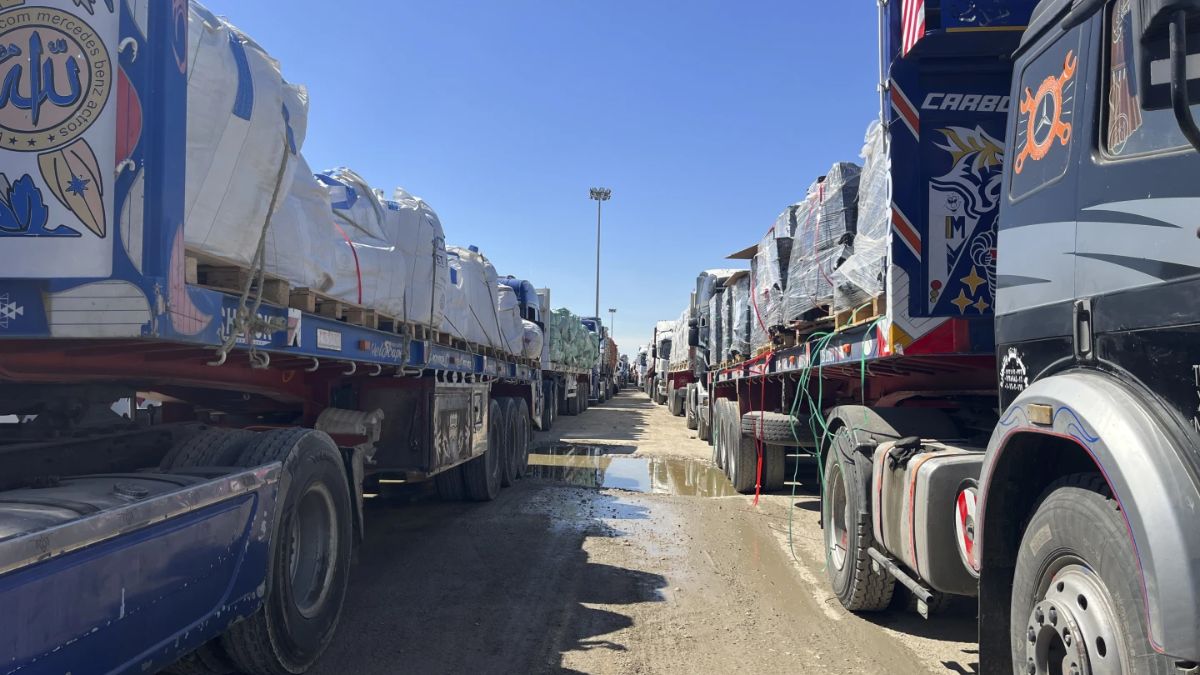Israel has stopped the entry of all goods and supplies to the Gaza Strip and warned of “additional consequences” if Hamas doesn’t accept a new proposal to extend a fragile ceasefire. This is an echo of the siege it imposed in the earliest days of its war with Hamas.
“A tool of extortion,” said Saudi Arabia’s foreign ministry. “A reckless act of collective punishment,” Oxfam said. Key mediator Egypt accused Israel of using “starvation as a weapon.”
The action has been met with sharp criticism from both the United Nations and other humanitarian aid providers calling the decision a violation of international law. Hunger is one of the pressing issues that Gaza’s two million population faces with aid experts warning of a possible famine. With this move, some experts are concerned about losing the progress that was reported under the past six weeks of a ceasefire.
The Israeli government, led by Prime Minister Benjamin Netanyahu, is exerting pressure on Hamas to accept a US-brokered proposal aimed at extending the first phase of the ceasefire. This move is designed to postpone negotiations on the significantly more challenging second phase , which would require Hamas to release all remaining living hostages in exchange for a complete Israeli withdrawal from Gaza and a lasting ceasefire agreement.
Here’s a look at what Israel’s decision means and the reactions
No word from US
Minutes after the first ceasefire phase ended early Sunday, Israel voiced its support for a US proposal, originating from West Asia envoy Steve Witkoff, to extend the ceasefire through Passover. Israel also made it clear that war could resume if negotiations don’t progress.
Negotiations on the second phase were meant to start a month ago, increasing the uncertainty around the fragile truce. Hamas has insisted that those talks begin. Later Sunday, Israel announced the immediate cutoff of aid to Gaza.
The Trump administration has not issued a statement about Israel’s announcement or its decision to cut off aid. It’s also not clear when Witkoff will visit the West Asia again. He had been expected to visit last week.
The US under the Biden administration pressed Israel to allow more aid into Gaza, threatening to limit weapons support. Aid organizations repeatedly criticized Israeli restrictions on items entering the small coastal territory, while hundreds of trucks with aid at times waited to enter.
Israel says it has allowed in enough aid. It has blamed shortages on what it called the UN’s inability to distribute it and accused Hamas militants of siphoning off aid.
For months before the ceasefire, some Palestinians reported limiting meals, searching through garbage and foraging for edible weeds as food supplies ran low.
Aid trucks entering Gaza
Commencing on January 19, the ceasefire’s initial phase enabled a significant influx of aid into Gaza, averaging 600 truckloads per day. This daily aid delivery was designed to be sustained across all three phases of the ceasefire.
However, Hamas says less than 50 per cent of the agreed-upon number of trucks carrying fuel, for generators and other uses, were allowed in. Hamas also says the entry of live animals and animal feed, key for food security, were denied entry.
Still, Palestinians in Gaza were able to stock up on some supplies. “The ceasefire brought some much-needed relief to Gaza, but it was far from enough to cover the immense needs,” the Norwegian Refugee Council said Sunday.
Israel’s announcement came hours after Muslims in Gaza marked the first breaking of the fast during the holy month of Ramadan, with long tables set for collective meals snaking through the rubble of war-destroyed buildings.
The sudden aid cutoff sent Palestinians hurrying to markets. Prices in Gaza “tripled immediately,” Mahmoud Shalabi, the Medical Aid for Palestinians’ deputy director of programs in northern Gaza, told The Associated Press.
Legal implications of the cutoffs
Critics have called the cutoffs a violation of humanitarian law. “International humanitarian law is clear: We must be allowed access to deliver vital lifesaving aid,” said the UN humanitarian chief, Tom Fletcher.
Hours after Israel’s announcement, five non-governmental groups asked Israel’s Supreme Court for an interim order barring the state from preventing aid from entering Gaza, claiming the move violates Israel’s obligations under international law and amounts to a war crime: “These obligations cannot be conditioned on political considerations.”
Last year, the International Criminal Court said there was reason to believe Israel had used “starvation as a method of warfare” when it issued an arrest warrant for Netanyahu. The allegation is also central to South Africa’s case at the International Court of Justice accusing Israel of genocide.
On Sunday, Kenneth Roth, former head of Human Rights Watch, said Israel as an occupying power has an “absolute duty” to facilitate humanitarian aid under the Geneva Conventions and called Israel’s decision “a resumption of the war-crime starvation strategy” that led to the ICC warrant.
With inputs from AP
)